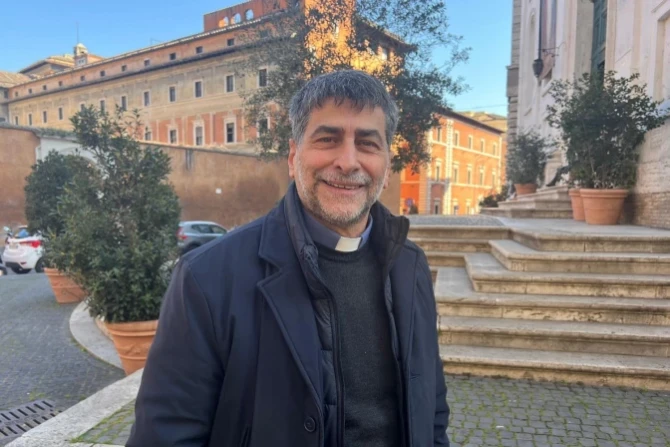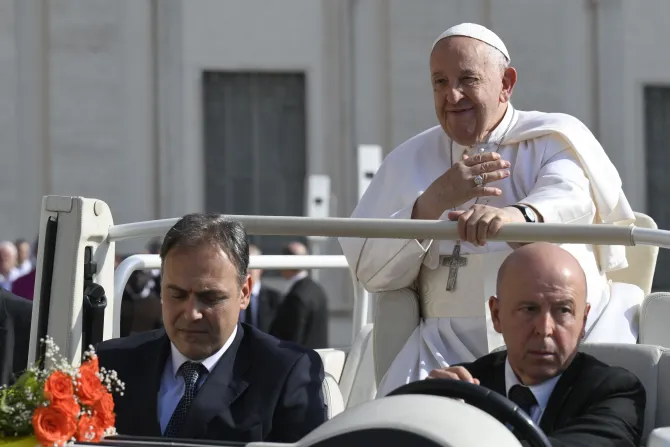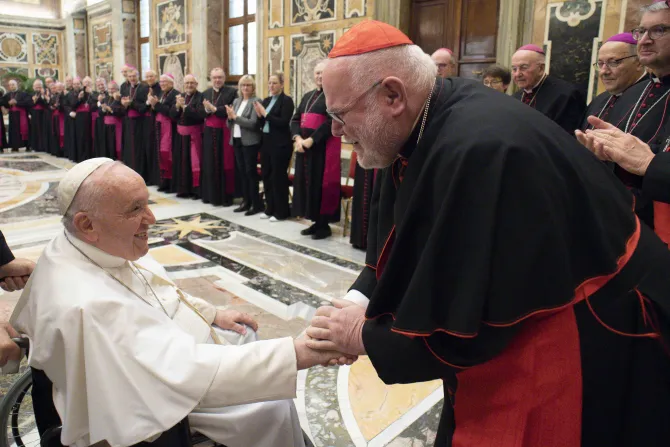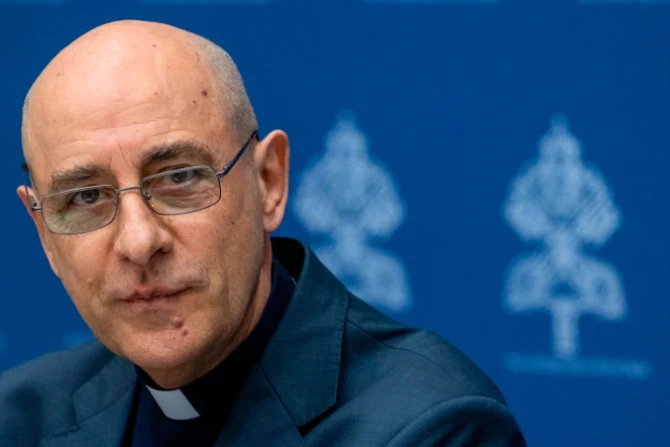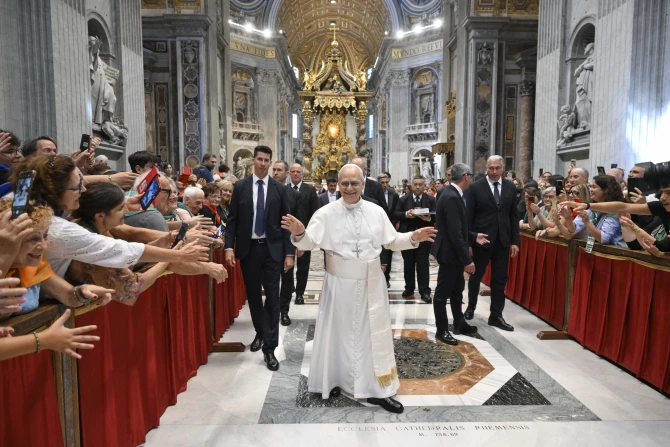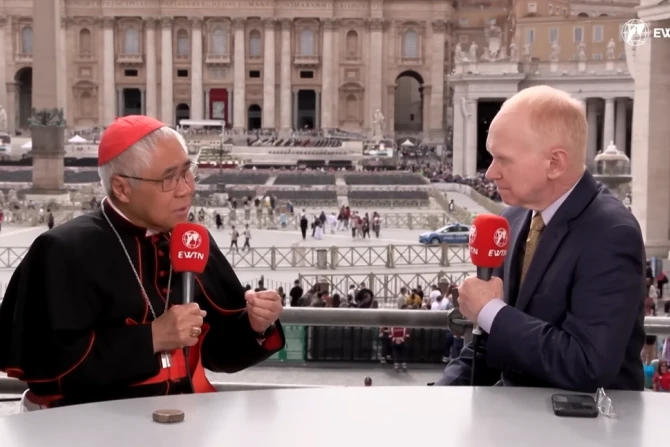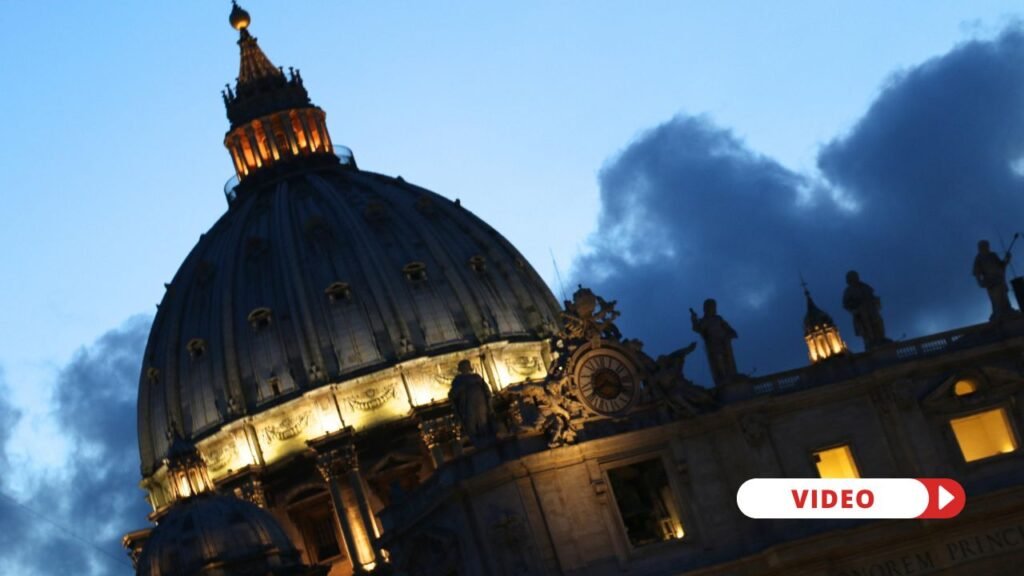Pope Francis decided to open for the first time in history a Holy Door in the Italian prison of Rebibbia during the Jubilee of Hope, a gesture that the prisoners welcomed as a sign of mercy, closeness, and hope.
His visit to Rebibbia set an example of what he called for in the bull Spes Non Confundit: to be “tangible signs of hope for so many brothers and sisters who live in conditions of hardship.”
Father Raffaele Grimaldi, inspector general of chaplains in Italian prisons, emphasized during a meeting with journalists organized by the ISCOM Association near the Vatican that the Holy Father knows “that those who have made mistakes need us to give them a hand so that they can get back on track.”
‘I learned to be a priest’ as a prison chaplain
Grimaldi left the chaplaincy in the Secondigliano prison in Naples — where he served prisoners for 23 years — to coordinate the 230 priests who care for the nearly 62,000 prisoners throughout Italy, of whom 20,000 are foreigners.
From his years as a chaplain, he noted that there were not only ordinary prisoners there “but also those in maximum security, people with a very extensive criminal history.”
The priest emphasized that his service “was for everyone” and that “it did not matter what crime the person had committed, because we should not identify the man who is in prison with his mistakes.”
“My experience in the Secondigliano prison was very intense; it formed me both humanly and spiritually. I always say that by being a chaplain, I learned to be a priest, because I met the weakest, the excluded, and above all, I realized there has to be mercy and forgiveness.”
The priest also emphasized that this has been the “most beautiful experience I have ever had: being with them for 23 years, with their families, trying to be a sign of hope for them.”
“We chaplains are truly convinced that if we help the prisoners, they can regain confidence in themselves,” he said. Grimaldi also noted that the prisoners pray every day for the speedy recovery of Pope Francis and that they were able to listen to the audio message he sent on March 6 from Gemelli Hospital, which they welcomed with hope.
A new culture of acceptance
Regarding the Holy Father’s call to carry out acts of clemency toward prisoners during the holy year, as took place in Cuba in January with the release of 553 prisoners following mediation by the Vatican, Grimaldi commented that when the pope issues a call, “it sets people free.”
“The pope’s appeal is based on the Gospel, an appeal to the conscience and responsibility of others. The pardon and act of clemency that the pope asks for is a call to mercy. We know well that the prisoners are there for reasons of justice, but we must never separate mercy from justice. Otherwise, justice becomes revenge,” he added.
Grimaldi noted that Rebibbia has become a “symbol of all the prisons in the world,” a place that the Holy Father chose “to say to the whole world: Let’s try to take a look at our prisons.”
However, he pointed out that Pope Francis has expressed his closeness to prisoners since the beginning of his pontificate by washing their feet on Holy Thursday and by his continuous appeals for mercy.
In a statement to ACI Prensa, CNA’s Spanish-language news partner, the priest emphasized that “the role of the laity is fundamental” since it is necessary to “convey a message of acceptance.”
“The prison door has been opened so that one can cross over and enter the prison. But we must not forget that this door is also open for others to leave. It is not only an entrance but also an exit,” he pointed out.
The priest said his greatest concern is that “when these prisoners leave, they don’t find acceptance or openness. There are still many prejudices and, to be frank, society is afraid to accept those who leave prison.”
The priest emphasized the need to “educate the community and society to be more welcoming and not indifferent to so many problems,” creating a new culture and ending indifference.
He also noted that on April 9, members of the Italian Bishops’ Conference, led by Cardinal Matteo Maria Zuppi, will pass through the Holy Door at the Rebibbia prison to celebrate the jubilee.
This story was first published by ACI Prensa, CNA’s Spanish-language news partner. It has been translated and adapted by CNA.

